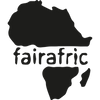Doing Business for the Common Good - Why fairafric is a Social Business

Business is mostly about one goal: profit, profit, profit. The highest possible profits at the lowest possible cost. But this kind of economic activity is often not good for the people involved or for our planet. That's why there are now many companies that want to do business differently and whose fundamental goal is not profits but the greatest possible social or sustainable impact.
fairafric is also one of these so-called "Social Businesses", or "Social Entrepreneurships". Our primary goal is not to make as much profit as possible or to pay out high dividends. The primary goal of fairafric is the creation of qualified jobs in Ghana and thus a social change in the chocolate industry, which is characterized by neo-colonialism. We want to achieve this goal with the greatest respect for all stakeholders and the highest possible degree of sustainability.
Social Businesses - Businesses for a fairer and sustainable world?
As already mentioned, social businesses are not about maximizing profits, but about acting as positively as possible for society and the environment, in other words having a so-called "social impact". This social impact can be achieved in many different ways and in many different areas. The inclusion of people with disabilities, the integration of refugees or sustainable urban and rural development are just a few examples of social areas in which social businesses are active. fairafric is primarily active in the area of poverty alleviation and global justice because our goal is to move value creation to West Africa, to create well-paid jobs and training positions, and to pay cocoa farmers fairly.
Social enterprises can also differ greatly in their size, financing or legal form. From the association (e. V.) to an AG, everything is represented here. fairafric was originally founded as a GmbH (limited liability company) and has been an AG (public limited company) since this year. This way we were able to open up even more financing possibilities and thereby increase our social impact. You can find more information about this topic in our FAQs. It is important to note that, unlike non-profit organizations, social businesses are not or are only partially financed by donations.
Their main income is generated from the products and services they offer, just like traditional businesses. In our case, that would be the sale of our organic chocolates. Due to social impact as a primary goal, social businesses represent a kind of hybrid version between the classic economy and the non-profit sector.
More and more companies around the world - especially young ones - are opting for this hybrid version. Many of them are organized in associations or projects to motivate, inspire and engage each other in the pursuit of a fairer and more sustainable economy. We would now like to introduce you to three associations in which fairafric is a member and which help us to continuously develop and realize our social and ecological goals.
SEND e.V.
The "Social Entrepreneurship Netzwerk Deutschland" (SEND for short) is the largest association of social entrepreneurs and supporters in Germany. Over 420 social enterprises and nearly 300 supporting members have joined the organization since it was founded in 2017. The aim of SEND e. V. is, on the one hand, to carry out political education and to educate society about the topic of social entrepreneurship, and on the other hand, to network social enterprises with politics, business, and other like-minded founders. For this purpose, SEND e. V. provides a lot of information and also conducts an annual survey among all members on the current state of social entrepreneurship in Germany. If you are interested in social entrepreneurship, you should definitely have a look at the website of SEND e. V..
Inklupreneur
Social business would not be social if it did not include all people. It is therefore important to us at fairafric that people with disabilities can also apply and work with us. Since 2021, we have been a member of Inklupreneur, a project to promote the inclusion of people with disabilities, especially in the start-up scene. Inklupreneur helps companies set inclusive goals and implement them. To do this, they work together with experts who support the participating companies in their transition to a more inclusive workplace. The respective goals are written down as pledges. fairafric, for example, has committed to filling three inclusive workplaces by 2024. Active work with Inklupreneur will probably not start until next year, as they are currently only active in Berlin. Until then, we will not remain inactive as far as the topic of inclusion is concerned, which is why we are still working together with Pfennigparade.
Pfennigparade
Pfennigparade is a foundation that has been working for inclusion and social participation of people with disabilities in all areas of life for almost 70 years. Its goal: a society in which diversity is the norm. For Pfennigparade, inclusion means: "Individuals do not have to adapt to the majority society, but the social conditions are designed in such a way that everyone can participate and be a full member of society. Ideally, the definition of normality then no longer plays a role. Diversity becomes a matter of course."
To achieve this, they work with a wide range of institutions and companies in the fields of education, work, housing, health and leisure, where they are committed to inclusive structures, spaces and living environments. fairafric has also been cooperating with the foundation since this year. The first step we took together was a shift change. This day of action took place in September and was, as our finance manager Jonas describes it, "an eye opener". We had the opportunity to spend a day at Pfennigparade and to also welcome people with disability to our office in Munich. In the process, we were able to learn an incredible amount and sensitize ourselves to the problems and obstacles that people with disabilities would face in our office and also in other areas of our company. As a next step, we are now working on creating our own inclusive jobs and job postings at fairafric.

Common Good Economy (GWÖ)
As the last project for social economy we would like to introduce you to the Gemeinwohlökonomie. This is a civic movement that is now represented throughout Europe and is looking to establish the concepts of a Common Good Economy in business, politics, and society. Companies that want to apply this concept can create a Common Good Report, which is then extensively reviewed. For this report, data is collected internally and the corporate activities are described and evaluated in relation to the 20 areas of the common good matrix. All areas are checked again externally by the GWÖ through audits.

We have been a member of GWÖ since May 2021 and are now working on our Common Good Report.
For this, we have to disclose, for example, all our business relationships, our handling of funds, and our measures for sustainability and health care, as well as send a questionnaire to all our suppliers. We are also planning GWÖ audits in Germany and Ghana, where all our activities relating to the common good values and their contact groups will be put to the test. If all goes well, in summer 2022 we will become the first multinational company to be allowed to call itself a "Balancing Company." This will allow us to send a strong signal to other companies and speak out in favor of an economic system that places the well-being of all people and nature at the center of its activities.
Conclusion
You have now gained a little insight into what it means to be a social business. We at fairafric think that there should be many more companies of this kind and that the economy as a whole should place much more emphasis on acting for the common good. Especially in terms of sustainability, systemic rethinking is of great importance if we still want to consume chocolate in the future. For a better and more sustainable economy, all people must be involved and treated with respect. As a social business, we see ourselves as having a responsibility here and are pleased about initiatives such as Pfennigparade, Inklupreneur, SEND e.V. or GWÖ, which help companies to build bridges between business and the common good. Together we prove that these are by no means opposites!









